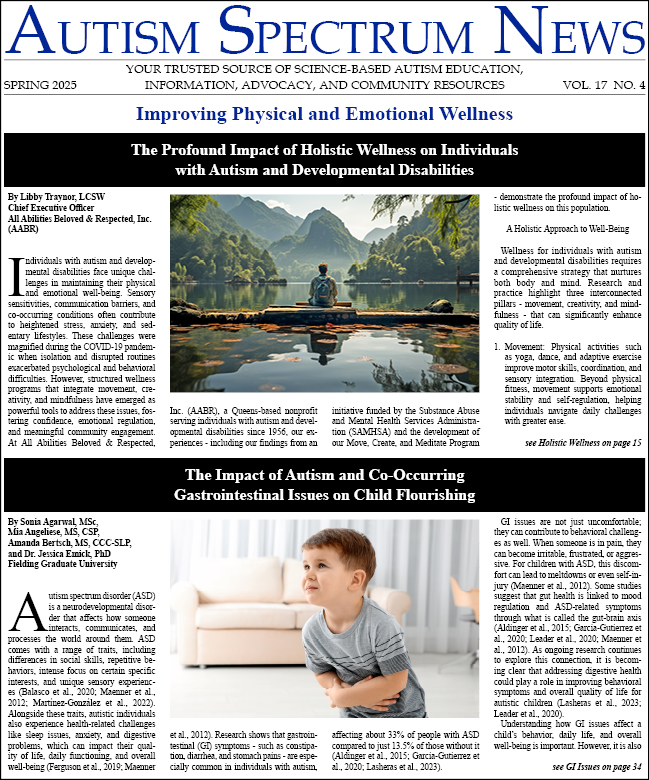-
Enhancing Communication: The Case for Teaching Public Speaking Skills to Autistic Individuals
“My stomach feels kind of weird,” an autistic middle school student once said to me when I asked him how he was feeling before he went on stage to co-host a talent show with me. I told him that he was experiencing anxiety, and people describe this as having “butterflies in your stomach.” As...
-
Improving Health Care Communication for Autistic Teens
Effective communication is essential in health care for accurate diagnoses, quality patient care, and positive outcomes (Ratna, 2019). However, communication barriers can significantly impact the health care experience, particularly for individuals with autism spectrum disorder (ASD) (Saqr et al.,...
-
The Autistic Special Interest as a Form of Communication
“What is with his obsession with dinosaurs?!?” “She just won’t shut up about Disney movies!” “If these kids would spend half as much time studying as they do playing with Pokémon cards, they’d be a lot better off.” Such are the responses that tend to greet special...
-
Cooking Up Communication: A Recipe for Using AI to Support Augmentative and Alternative Communication (AAC) with Modeling Scripts
Augmentative and Alternative Communication (AAC) plays an important role in empowering individuals with autism and other complex communication needs to engage meaningfully in their communities. Essential to AAC adoption is the evidence-based practice of modeling, wherein communication partners...
-
Voices from China: Psychology Students Reflect on Autism Awareness and Advocacy
Wenzhou-Kean University is one of three Sino-US universities, with Kean University being the only public university that has a campus in China (Stern, 2024). The mission of this alliance is to foster cooperation and encourage people, especially youth, to get to know each other better (Zhang, 2024)....
-
Exploring the Overlooked Connections: Sensory Processing Impairments and Communication Challenges in Autism Spectrum Disorders
(Note: “Aspie” is my preferred term for people on the Autism Spectrum) Effective communication is the foundation of strong relationships and personal growth. Sensory and emotional processing disorders affect children on the Autism Spectrum and may persist into adulthood, affecting all...
-
Nina: A Nonspeaker Who Found Her Voice
Key Points Access to communication is a fundamental human right. Misconceptions about nonspeaking autism can be harmful. Spelling to communicate (S2C) can be a powerful tool for nonspeaking autistic people. Neurotypicals should presume competence and become helpful...
-
“Nothing About Us Without Us” Leaves Voices Out
In the autistic community, we often hear the phrase “nothing about us without us.” On its surface, that seems like the ethical standard that those of us who are not autistic should commit to. It feels respectful for non-autistic clinicians, educators, and researchers like me to take our...
-
Social Communications: An Essential but Often Overlooked Skill for Autistics
Autism has been described, and sometimes defined, as a disorder of communication. This is certainly the case for nonverbal autistics and others who are completely unable to communicate, but it is just as true for those who are articulate and able to express themselves verbally. For them, autism is...
-
Yes, We Can Socialize
Throughout my life as an autistic person, I have been fortunate to have experienced great moments where I have been able to socialize with others and gain long-lasting friendships. There were also times when, due to my misunderstanding of certain social situations and the anxiety that comes with...





